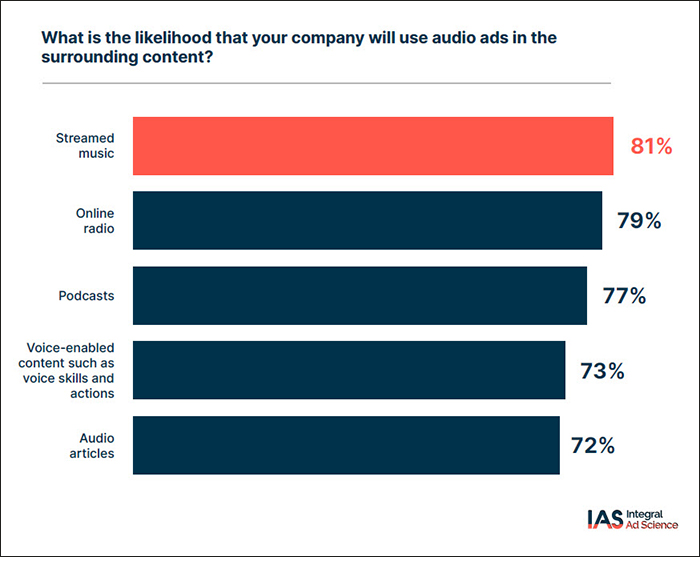Training for digital citizenship is in vogue, however is it dominated by a brand new industrial panorama?

 The affect of recent expertise on youngsters and new types of media is a continuing space of concern amongst coverage makers and educators (in addition to amongst mother and father!) Throughout US-based ‘Digital Citizenship Week’ LSE visiting fellow Ioanna Noula addresses the concept that youngsters want training within the idea of ‘digital citizenship’ and explains how present approaches is perhaps missing.
The affect of recent expertise on youngsters and new types of media is a continuing space of concern amongst coverage makers and educators (in addition to amongst mother and father!) Throughout US-based ‘Digital Citizenship Week’ LSE visiting fellow Ioanna Noula addresses the concept that youngsters want training within the idea of ‘digital citizenship’ and explains how present approaches is perhaps missing.
“Citizenship is within the making and never a protected possession of empiricists or normative theorists” (Van Gunsteren, 1988).
Over the previous decade, digitalisation and synthetic intelligence have been seismically re-organising the socio-political panorama, producing new hopes and fears and producing new dangers together with distinctive alternatives. On this context and particularly throughout the limits of training, the neologism “digital citizenship” has turn out to be a catchphrase to accommodate grownup considerations concerning youngsters’s relationship with new media and its affect on youngsters’s improvement, studying talents and profitable socialisation.
The notion of digital citizenship has turn out to be a very standard idea within the training group and has been extensively endorsed by influential organisations within the fields of training, youngsters’s advocacy and media literacy. Towards the backdrop of common lack of digital understanding within the pivotal sector of primary training, analysis “air-gaps” are stuffed by digital citizenship quasi-experts who leverage their digital expertise and experience and their skilled relationship with training to take care of professional grownup anxieties over youngsters’s well-being.
Though digital citizenship stays a largely contested idea in educational analysis and debate, the training sector seems to be extensively adopting skills-based definitions and sensible approaches to the idea. The emergence and prevalence of those technocratic definitions of digital citizenship is because of their ‘user-friendly’ character. Such definitions prevail within the realm of training as a result of they provide palpable and understandable directions, promising to allow academics and oldsters to cope with their considerations round digitalisation whereas evangelising a digital utopia.
Essentially the most consultant and standard account of training for digital citizenship has been produced by Mike Ribble, “the godfather of digital citizenship”, in his guide Digital Citizenship in Colleges. I might argue that Ribble’s “9 parts” definition of digital citizenship training and the in depth adoption of his ideologically pushed conceptualisation has a detrimental impact on dialogue. Ribble’s definition is problematic in that it assumes the “neutrality of expertise” and spotlights problems with “acceptable use” and “consumer accountability,” which contribute to an absence of consideration to the tasks of the tech sector, and retains company practices off the accountability grid.
Ribble’s and different comparable top-down definitions “garnished” with techno-utopian narratives and abounding with concern about youngsters’s welfare have created a brand new market of consultancy and conferences. In flip, this market establishes the authority of those approaches, by means of systematic dissemination and engagement with training stakeholders. Self-proclaimed digital citizenship specialists branded as “digital citizenship consultants” or “digital citizenship audio system” communicate with fervent enthusiasm concerning the potential of the digital to create a world village of kindness and creativity that resonates with the narratives of Fb’s Manifesto.
The case of the Digital Citizenship Institute. Enterprise or welfare?
Backed by influential organisations together with Frequent Sense Training, the Nationwide Affiliation for Media Literacy Training (NAMLE), and several other instructional expertise (edtech) corporations, the Digital Citizenship Institute (stylised as DigCit Institute) gives the most effective instance of entrepreneurial exercise within the digital citizenship training panorama. The Institute is organised round Ribble’s definition of digital citizenship and convenes annual summits for training audiences.
The industrial character of the Institute is communicated by means of the usage of catchy slogans (i.e. “act Regionally, assume Globally”, “from the classroom to the boardroom”, “be protected, savvy and moral”) and manifests within the sorts of providers offered together with consultancy, trainer certification, curriculum improvement, keynoting alternatives. Unholy alliances with edtech suppliers of controversial providers reveal an unprincipled view of training.
Though youngsters are positioned on the forefront of the Institute’s advertising technique, its mission is clearly underpinned by a condescending deficit mannequin of childhood (youngsters seen as weak beings and in want of safety) and an outdated understanding of kids’s citizenship (youngsters as “residents in ready”).
Since its inaugural occasion in 2015, the DigCitSummit has been probably the most eminent occasions with an unique concentrate on digital citizenship training. The 2016 summit, hosted at Twitter’s Headquarters, was a landmark occasion that contributed to the vast recognition and elevated authority of the Digital Citizenship Institute. This 12 months’s occasion was backed by uncommon sponsors together with the controversial multinational group IKEA or the odd sponsor “Pappy’s Smokehouse” (!).
With emphasis on examples of finest apply and individual experiences moderately than analysis proof, “Digcit” advocates typically depart from an unchecked enthusiasm about tech. This techno-hype which is matched by the vocal championship of self-evident civic and academic values (goodness, empowerment, optimistic and proactive attitudes and moral behaviours) is obscuring the mission of training to advertise democratic citizenship. Proponents of digital citizenship misrepresent conventional ideas for training together with vital pondering and empowerment, fuelling the neoliberal character of up to date training methods.
The dearth of digital understanding, together with rising grownup considerations across the affect of digitalisation and overwhelmed academics’ want for options, allows the exercise of brokers that supply quick-fixes.
Digital (?) Citizenship and the custom of democratic training
In distinction to their said dedication to empowering younger individuals within the digital age, “9 parts” kind digital citizenship definitions encourage a compliant mannequin of citizenship which transposes accountability to residents, specializing in “moral and accountable use”.
I’ve recognized three key implications of the proliferation of those deeply ideological approaches to digital citizenship:
- Highlighting particular person customers’ kindness and ethics as enablers for a optimistic digital tradition conceals the tasks of the tech business.
- By emphasising kindness and ethics, these approaches additionally undermine the worth of battle and dissent for the development of democracy and the progress of human civilisation.
- Subscribing to the disconnect between on-line and offline, they decontextualise the notion of citizenship which ensures that ‘the attentions of involved adults and youth alike are turned away from the social circumstances that make younger individuals weak and prone to have interaction in dangerous behaviours’.
Contemplating training because the cradle of democracy and the custodian of collective social values, it is very important study the prices and advantages of the introduction of tech in pedagogical areas. To this finish, vital literacies that tackle greater than technical expertise and competence must be thought-about. Choices and coverage for training must be made in gentle of persuasive empirical analysis and proof, moderately than counting on wishful pondering. Actually empowered citizenship is the end result of sturdy vital literacies that allow people to be self-reliant, resilient and capable of have interaction holistically with their environments, moderately than merely purposeful.
In keeping with the democratic legacy of the western world, residents of the digital world ought to have a say within the shaping of their lifeworld and have the ability to take part in methods which can be significant to them with the intention to decide their sociocultural universe. Up to date digitally-enabled citizenship must be based upon the ideas of equitable dialogue and inclusiveness, whereas additionally embracing the productive contribution of dissent.
Digital citizenship is a helpful idea that may steer public and educational debate drawing consideration to the transformations of citizenship in gentle of the digital disruption. Nonetheless, the unique concentrate on behaviours and tech expertise leaves citizen participation and empowerment out of its scope and considerably limits the potential of training to result in change.
This publish offers the views of the writer and doesn’t characterize the place of the LSE Media Coverage Mission weblog, nor of the London Faculty of Economics and Political Science.


